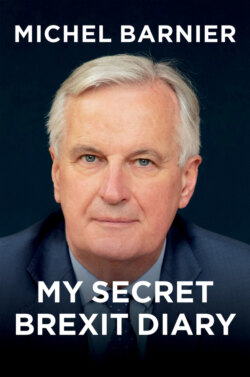Читать книгу My Secret Brexit Diary - Michel Barnier - Страница 35
Friday, 11 November 2016: Focus on strategy
ОглавлениеUpon our return from Austria, after a long week during which I also visited Denmark and Slovakia, Sabine, Stéphanie and I are working together with Jean-Claude Juncker’s staff. For the first time I will be presenting a negotiation strategy to the President of the Commission.
First, there are a few issues in the Article 50 negotiation upon which agreement is essential, including the financial settlement that the UK must reach in order to settle accounts with the EU, and the need to agree upon the acquired rights of EU citizens living in the UK and UK citizens living in the EU. We also need to work on border issues, particularly in Ireland, and find a way to satisfy all aspects of the commitments of the Good Friday (Belfast) Agreement, signed on 10 April 1998 to end the Troubles that had torn Northern Ireland apart for more than thirty years. These three issues will have to be addressed in the first phase.
Second, Article 50 provides that, in stipulating the terms of withdrawal, the exit agreement should take account of the future relationship with the remaining countries. In doing so, the existing models – Norway, Switzerland, Canada and others – cannot be used as a reference, contrary to what is already being suggested in some quarters, because they concern countries that are far less economically integrated with the EU than the UK is. Any future agreement with the UK will therefore need to be far more thorough in establishing a ‘level playing field’, particularly with regard to competition rules and jurisdictional authority.
Third, once the shape of the new relationship has been established, it will be possible to start thinking about a time-limited transition period, the aim of which will be to make the move to this new relationship as smooth as possible. The transition will need to be heavily supervised and will probably require continuation of some of the acquis communautaire, in particular the regulatory framework of the internal market, i.e. standards, norms, the various supervisory authorities and, necessarily, the authority of the EU Court of Justice. Legally, the establishment of such a transition period must form part of the exit agreement.
Finally, just as important as the substantive issues is the organization of the negotiations. A few days earlier, Georg brought to my attention an article written by Andrew Duff, a former British MEP and a great connoisseur of EU arcana. Duff points out that the European Councils are likely to be crucial points in the negotiations. And he is quite right! Controlling the timeline, setting the tempo, is key. We will structure the negotiations according to our own calendar.
